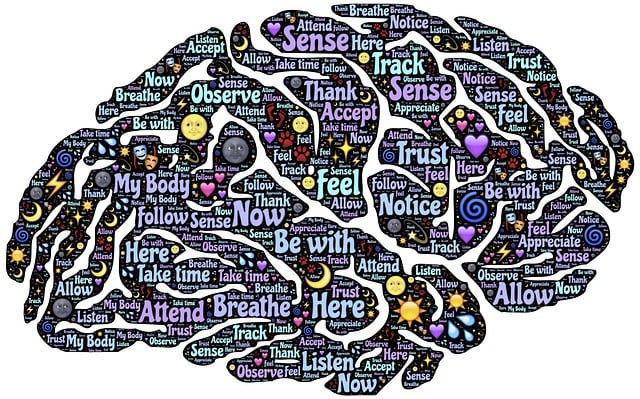Mental health policies are crucial for holistic well-being, especially in vulnerable communities. A comprehensive analysis reveals their potential to improve access to quality care, including specialized therapy for child abuse survivors. By addressing social determinants of health, cultural sensitivity, and evidence-based practices, advocates can drive positive change. Incorporating self-care for professionals and superior child abuse therapy ensures healthier communities. Tailored treatments like CBT, EMDR, and trauma-focused dynamic psychotherapy facilitate healing. Engaging diverse stakeholders and using strategic communication leads to effective policy reforms. Holistic evaluation measures emotional regulation, social skills, and resilience, ensuring policies advocate for better mental health outcomes at all levels.
Mental health policy analysis and advocacy are pivotal in shaping societies’ overall well-being. This article delves into critical components of mental health governance, focusing on improving child abuse therapy as a key area of need. We explore evidence-based practices proven to treat trauma effectively, while advocating for stakeholder engagement to drive policy reform. Additionally, we discuss successful evaluation methods to measure the impact of mental health initiatives, with a particular emphasis on enhancing Superior Child Abuse Therapy.
- Understanding Mental Health Policy: A Foundation for Change
- Identifying Gaps: Child Abuse Therapy in Need of Improvement
- Evidence-Based Practices: Effective Approaches to Treat Trauma
- Advocacy Strategies: Engaging Stakeholders for Policy Reform
- Measuring Success: Evaluating the Impact of Mental Health Initiatives
Understanding Mental Health Policy: A Foundation for Change

Mental health policies are a cornerstone in fostering holistic well-being within communities, especially among vulnerable populations. Understanding the intricate web of these policies is paramount when advocating for positive change. Mental Health Policy analysis involves scrutinizing existing laws, guidelines, and programs to identify strengths and gaps, ensuring every individual has access to quality care. By analyzing these policies, advocates can pinpoint areas where improvements are needed, whether it’s enhancing awareness campaigns or allocating more resources to support at-risk groups like children exposed to abuse.
The foundation for effective change lies in comprehensive policy understanding, which includes recognizing the interplay between social determinants of health, cultural sensitivity, and evidence-based practices. For instance, implementing policies that promote Self-Care Practices and Risk Management Planning for Mental Health Professionals can significantly contribute to a healthier workforce. Encouraging professionals to prioritize their well-being through structured Self-Care Routine Development for Better Mental Health is not just beneficial for them but ensures sustained quality care for clients.
Identifying Gaps: Child Abuse Therapy in Need of Improvement

The landscape of mental health care is constantly evolving, and while significant strides have been made in recent years, there remain critical gaps that demand our attention, particularly when it comes to superior child abuse therapy. Despite growing awareness and efforts to address childhood trauma, many existing therapeutic approaches are not adequately equipped to meet the complex needs of survivors. This is where the importance of enhancing coping skills development among young victims becomes paramount.
By incorporating evidence-based mind over matter principles into treatment protocols, mental health professionals can equip children with the tools necessary to manage and overcome adversity. Furthermore, implementing robust risk management planning strategies is essential to ensure the safety and well-being of both clients and practitioners. Such proactive measures will not only strengthen the overall mental health policy but also foster a more resilient and supportive environment for those who have experienced child abuse.
Evidence-Based Practices: Effective Approaches to Treat Trauma

In the realm of mental health policy analysis and advocacy, one of the most effective approaches to treat trauma is through evidence-based practices. Superior Child Abuse Therapy, for instance, has been shown to be transformative in addressing complex emotional wounds. These therapeutic modalities prioritize individualized treatment plans that tap into the latest research and clinical expertise, fostering a holistic healing process. By integrating strategies such as cognitive behavioral therapy (CBT), eye movement desensitization and reprocessing (EMDR), and trauma-focused dynamic psychotherapy, mental health professionals can facilitate profound emotional healing processes.
Mental Health Education Programs Design that incorporate resilience building are also pivotal in mitigating the impact of trauma. Educating both survivors and support systems about the nature of trauma and its effects enables better comprehension and more effective coping strategies. This, in turn, enhances access to quality care and promotes broader mental health literacy, ultimately contributing to stronger communities that can better respond to and support individuals navigating trauma’s aftermath.
Advocacy Strategies: Engaging Stakeholders for Policy Reform

Effective advocacy for mental health policy reform begins with engaging a diverse range of stakeholders. This includes healthcare providers, policymakers, community organizations, and individuals directly affected by mental health issues, such as those who have experienced superior child abuse therapy. By fostering collaborative partnerships, advocates can build a strong foundation for change. Healthcare professionals, for instance, can contribute valuable insights into the current challenges and unmet needs in mental wellness coaching programs development.
Policymakers play a pivotal role in shaping legislation that impacts access to quality mental health services. Engaging them requires strategic communication focused on evidence-based arguments and personal stories that highlight the urgency of burnout prevention strategies for healthcare providers, as well as the broader implications for public health and societal well-being. This multi-faceted approach ensures that policy reforms address not just specific aspects like stress management, but also the systemic issues that underpin mental health disparities.
Measuring Success: Evaluating the Impact of Mental Health Initiatives

Measuring the success of mental health initiatives is paramount to understanding their true impact and effectiveness. It involves a comprehensive evaluation that goes beyond mere numbers, delving into qualitative data to assess improved emotional regulation, enhanced social skills, and fostered resilience among individuals. By implementing robust assessment tools, we can gauge the long-term benefits, such as reduced rates of self-care practices related to stress or anxiety and decreased instances of child abuse therapy referrals.
This evaluation process should consider both individual progress and systemic changes. For instance, increased access to evidence-based treatments, like Social Skills Training, might lead to better community mental health outcomes. Similarly, successful initiatives could result in reduced stigma associated with seeking help, thereby encouraging more people to prioritize their emotional well-being. Ultimately, evaluating the impact of these programs is crucial for shaping policies that effectively support and advocate for mental health at all levels.
Mental health policy analysis and advocacy are vital components in fostering a healthier society. By understanding the current landscape, identifying gaps such as the need for improved child abuse therapy, and adopting evidence-based practices like trauma-focused treatments, we can drive meaningful change. Effective advocacy strategies that engage stakeholders can lead to successful policy reforms, ultimately enhancing mental health services. As we move forward, measuring the impact of these initiatives is crucial to ensure we’re making progress towards a superior child abuse therapy system and improved overall mental well-being.














